Coffee is a beloved drink enjoyed by millions every day.
But if you have high blood pressure, you might wonder if it’s safe to keep sipping.
Studies have shown mixed results, making it confusing to know what’s best.
This post will explore how coffee affects blood pressure, what the research says, and whether you should worry.
Let’s dive in to see if your daily cup of coffee is friend or foe.

The Short Answer
Coffee can cause a temporary spike in blood pressure due to its caffeine content.
However, moderate coffee consumption of around 1-2 cups per day is generally safe for most people with high blood pressure.
It’s important to monitor individual reactions and consult a healthcare provider for personalized advice.
Understanding High Blood Pressure
High blood pressure, or hypertension, is when the force of blood against your artery walls is too high.
It’s a common condition that can lead to serious health problems if not managed.
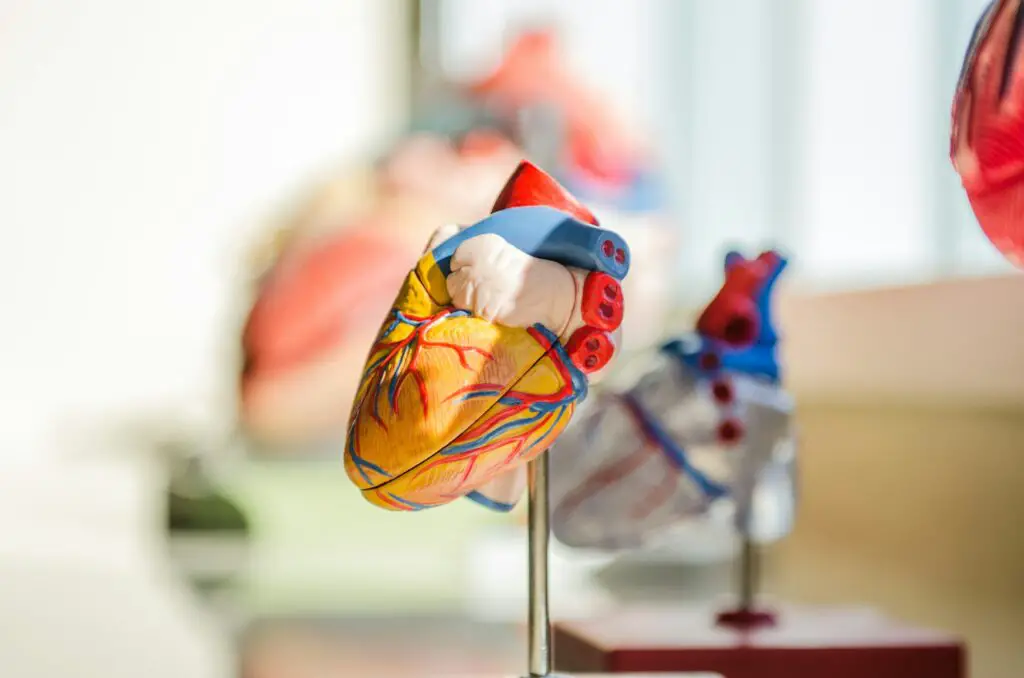
Definition and Statistics
Hypertension is often called the “silent killer” because it usually has no symptoms.
In the United States, nearly half of adults have high blood pressure.
It’s a major risk factor for heart disease and stroke, which are leading causes of death.
Causes and Risk Factors
Several factors can contribute to high blood pressure.
These include genetics, age, and lifestyle choices.
Eating too much salt, not getting enough exercise, and being overweight are common causes.
Stress and excessive alcohol consumption can also play a role.
Symptoms and Diagnosis
Most people with high blood pressure don’t know they have it until they get checked.
That’s why regular monitoring is important.
When symptoms do occur, they might include headaches, shortness of breath, or nosebleeds.
To diagnose hypertension, doctors use a blood pressure cuff to measure the force of blood in your arteries.
A reading of 140/90 mmHg or higher is considered high.
Coffee and Its Components
Coffee is more than just a tasty beverage.
It’s packed with various compounds that can affect your health in different ways.
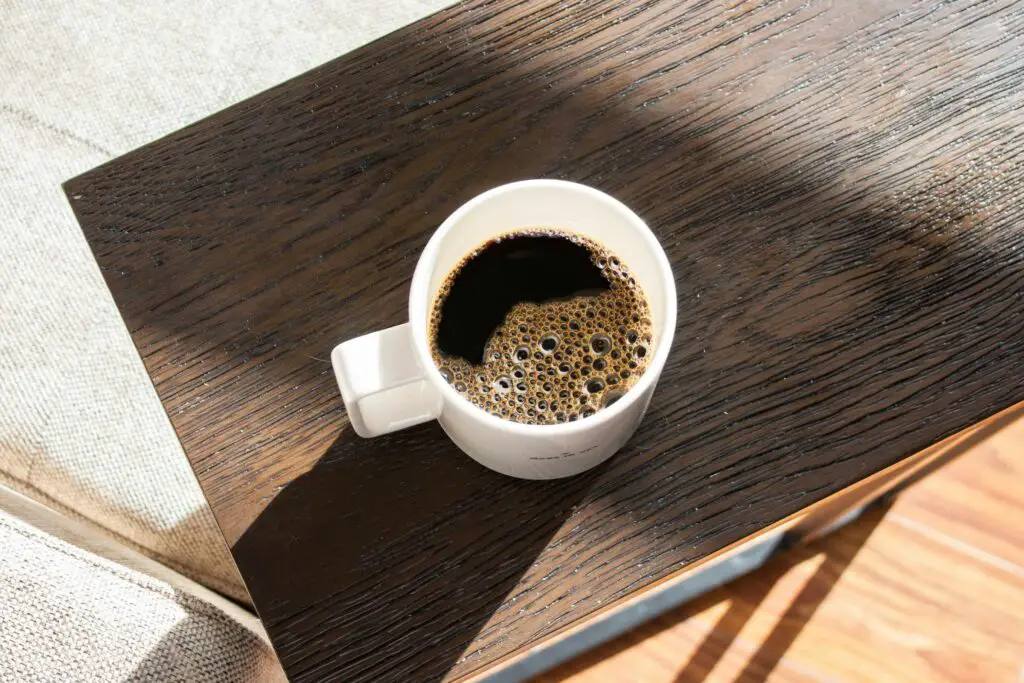
Overview of Coffee Composition
Coffee contains many ingredients, but the most well-known is caffeine.
Alongside caffeine, coffee has antioxidants, vitamins, and minerals.
Each cup of coffee offers a complex mix of these components, contributing to its unique effects on the body.
Caffeine: Benefits and Risks
Caffeine is the most studied component of coffee.
It stimulates the nervous system, helping you feel more alert and focused.
However, caffeine can also cause a short-term spike in blood pressure.
This effect varies from person to person.
Some people may experience jitters or anxiety, while others might not notice any difference.
It’s important to find the right balance and not overdo it.
Antioxidants and Other Beneficial Compounds
Coffee is rich in antioxidants, which help fight inflammation and protect your cells from damage.
One key antioxidant in coffee is chlorogenic acid.
This compound can help lower blood pressure by increasing nitric oxide in your blood.
Nitric oxide helps relax blood vessels, improving blood flow.
Despite the caffeine content, these beneficial compounds can make coffee a healthy choice when consumed in moderation.
How Coffee Affects Blood Pressure
Coffee can have different effects on blood pressure, depending on how much and how often you drink it.

Short-Term Effects
When you drink coffee, you might notice an immediate increase in your blood pressure.
This happens because caffeine is a stimulant.
It causes your heart to beat faster and your blood vessels to narrow.
This effect can be seen within 30 minutes of drinking coffee and can last for up to three hours.
Immediate Increase in Blood Pressure
The rise in blood pressure after drinking coffee is usually temporary.
For most people, it increases by 8 mm Hg systolic (the top number) and 6 mm Hg diastolic (the bottom number).
This can be more pronounced if you are not a regular coffee drinker or if you consume a large amount in a short period.
Long-Term Effects
Over time, regular coffee drinkers often develop a tolerance to caffeine.
This means their bodies become accustomed to caffeine, and the initial spike in blood pressure becomes less pronounced.
Some studies suggest that habitual coffee consumption does not lead to a long-term increase in blood pressure.
In fact, regular coffee drinkers might not experience significant changes in their blood pressure levels compared to non-drinkers.
Coffee Consumption and Hypertension
Coffee’s relationship with blood pressure is complex and varies from person to person.
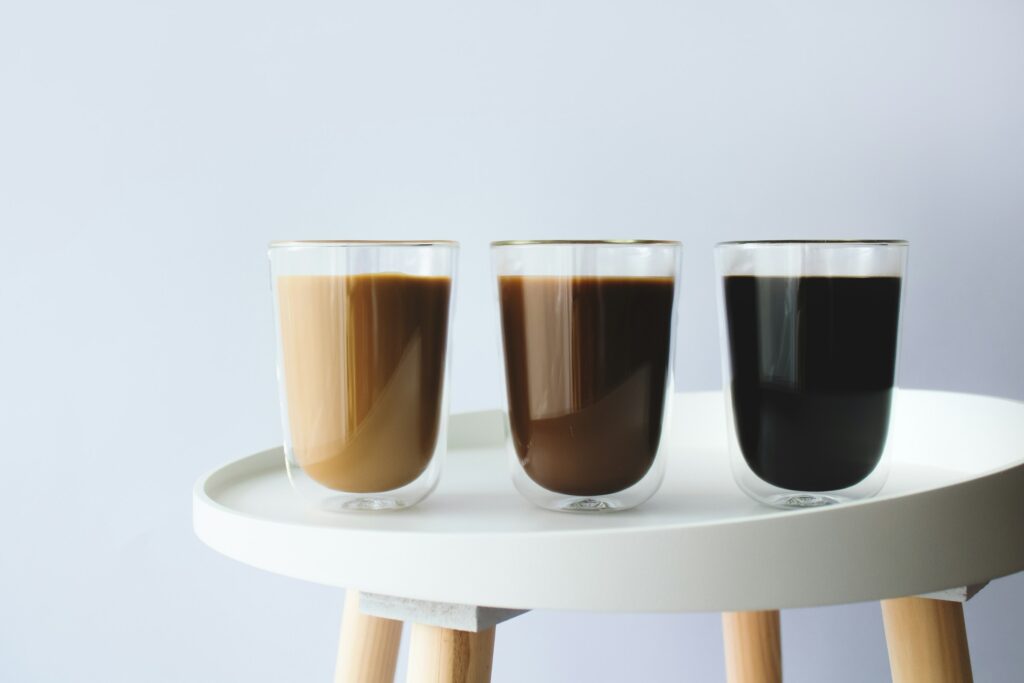
Studies Linking Coffee to Lower Blood Pressure
Recent studies have shown that drinking three or more cups of coffee daily may be linked to lower blood pressure.
One study published in the journal Nutrients involved over 1,500 participants from Brisighella, Italy.
It found that regular coffee drinkers had lower blood pressure readings.
The compounds in coffee, like chlorogenic acid, can increase nitric oxide, helping to relax blood vessels and lower blood pressure.
This suggests that moderate coffee consumption could be beneficial, even for those with hypertension.
Research on Coffee and Severe Hypertension
However, the situation is different for people with severe hypertension.
A study involving over 18,000 adults in Japan found that drinking two or more cups of coffee daily could double the risk of death from cardiovascular disease in people with very high blood pressure (160/100 mmHg or higher).
This increased risk does not apply to those with lower blood pressure levels.
Additionally, the American Heart Association advises caution with coffee for people with high blood pressure, as excessive consumption can lead to other health issues like sleep problems and anxiety.
Should People with High Blood Pressure Avoid Coffee?
The question of whether people with high blood pressure should avoid coffee is a topic of ongoing debate.
Here’s our take on this:

Arguments for and Against Coffee Consumption
There are valid points on both sides.
On the one hand, coffee can cause a short-term increase in blood pressure.
This is due to caffeine, which stimulates the nervous system.
Some argue that this temporary spike can be harmful, especially for those with severe hypertension.
On the other hand, coffee contains beneficial compounds like antioxidants that can promote heart health.
Studies have shown that moderate coffee consumption might even lower blood pressure in some people.
Expert Opinions and Guidelines
Experts have varying opinions on this issue.
The American Heart Association suggests that people with high blood pressure should be cautious with coffee.
They recommend limiting consumption to avoid potential side effects like sleep problems and anxiety.
However, recent studies indicate that moderate coffee consumption, about four to five cups a day, is generally safe for most people.
For those with severe hypertension, limiting intake to one cup per day is advisable.
It’s essential to follow guidelines from healthcare providers tailored to individual health needs.
Personal Factors and Sensitivity to Caffeine
Personal sensitivity to caffeine plays a significant role.
Some people may experience a significant rise in blood pressure after drinking coffee, while others may not.
As mentioned earlier, regular coffee drinkers often develop a tolerance, reducing the impact on their blood pressure.
It’s crucial to monitor your body’s response to coffee.
Measuring your blood pressure before and after drinking coffee can help determine your sensitivity.
If you notice a significant increase, consider reducing your intake or switching to decaf.
Alternatives to Coffee
For those concerned about coffee’s impact on blood pressure, there are several alternatives to consider.
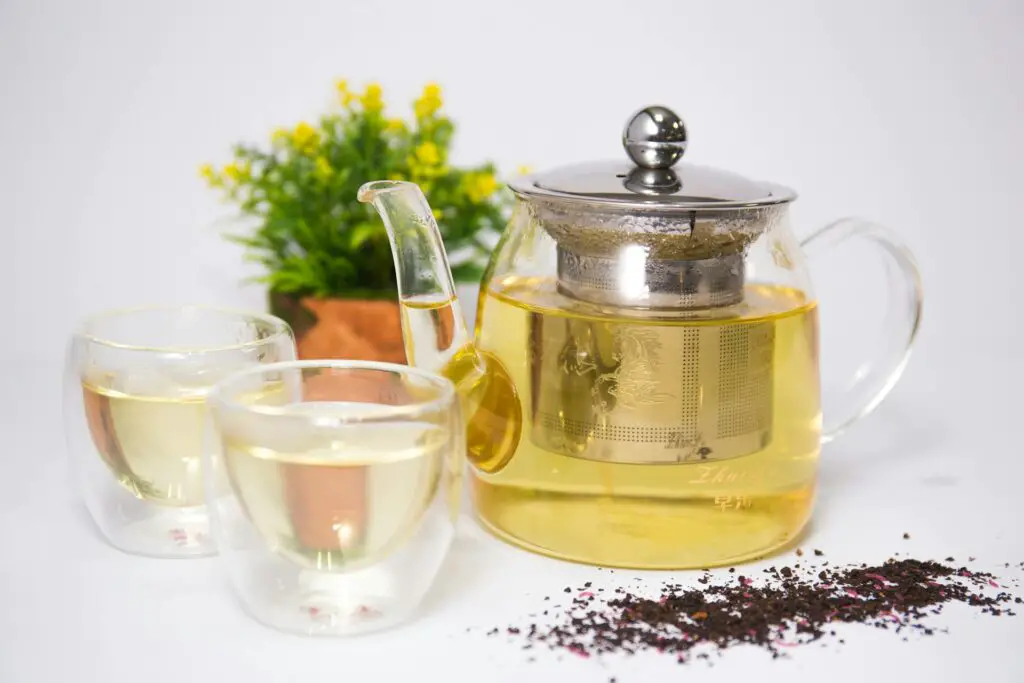
Decaffeinated Coffee
Decaffeinated coffee offers the taste of coffee without the high caffeine content.
It’s a good option for people who enjoy coffee but want to avoid caffeine’s effects on blood pressure.
Decaf still contains some caffeine, but in much smaller amounts.
This makes it a safer choice for those who need to limit their caffeine intake but still want to enjoy a warm, flavorful beverage.
Herbal Teas and Other Beverages
Herbal teas are another excellent alternative.
Unlike regular tea, herbal teas are naturally caffeine-free.
Options like chamomile, peppermint, and rooibos can be soothing and beneficial for health.
They offer a variety of flavors and can be enjoyed hot or cold.
Herbal teas can help keep you hydrated without the risk of increasing your blood pressure.
Other non-caffeinated beverages like hot water with lemon or fruit-infused water can also be refreshing and healthy alternatives.
Low-Caffeine Coffee Alternatives
If you prefer a coffee-like experience with less caffeine, consider low-caffeine alternatives.
Chicory coffee, made from roasted chicory root, has a similar taste to coffee but is naturally caffeine-free.
Dandelion root coffee is another option that mimics the flavor of coffee without the caffeine.
These alternatives can provide the rich, roasted flavor of coffee without the potential blood pressure spikes associated with caffeine.
Practical Tips for Coffee Drinkers with High Blood Pressure
For those with high blood pressure, enjoying coffee safely involves a few practical steps.
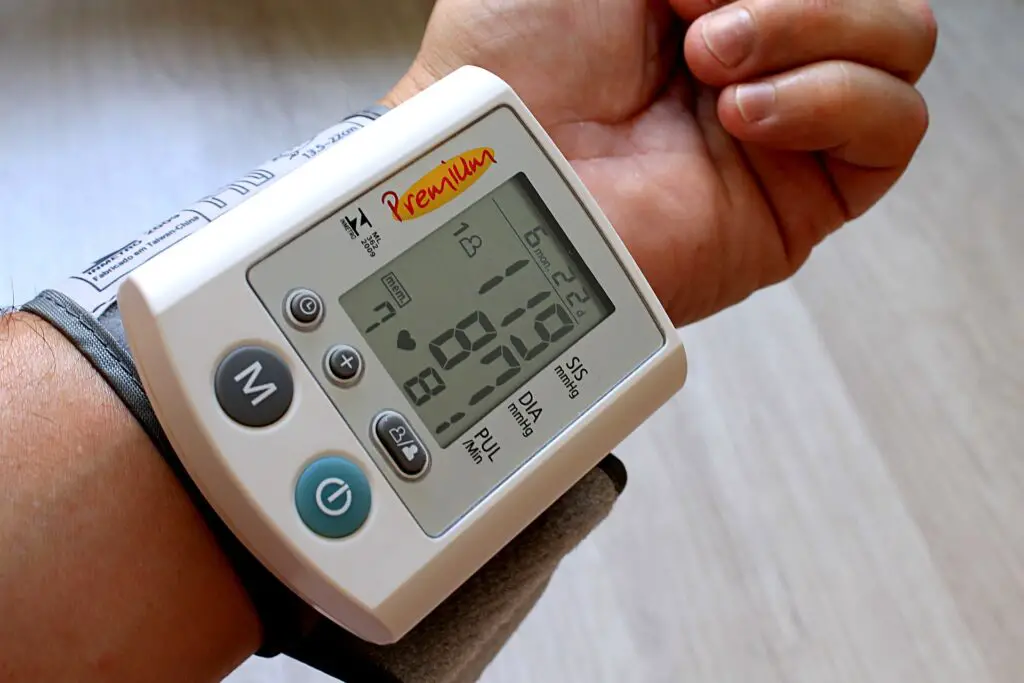
Monitoring Blood Pressure
Regularly monitoring your blood pressure is crucial.
This helps you understand how coffee affects your body.
Measure your blood pressure before and 30 to 120 minutes after drinking coffee.
If you notice a significant increase, consider adjusting your coffee intake.
Keeping a log of these readings can help you and your healthcare provider make informed decisions about your caffeine consumption.
Limiting Daily Caffeine Intake
It’s important to limit your daily caffeine intake.
The U.S. FDA considers 400 milligrams of caffeine per day safe for most people, but those with high blood pressure might need to aim lower.
Try to keep your intake around 200 milligrams or less.
This is roughly equivalent to two 8-ounce cups of coffee.
Be mindful of other sources of caffeine, such as tea, soda, and chocolate, to stay within your limit.
Timing of Coffee Consumption
The timing of your coffee consumption can also play a role.
Avoid drinking coffee right before activities that naturally raise your blood pressure, such as exercise or stressful tasks.
Instead, enjoy your coffee during more relaxed times of the day.
This can help minimize the combined impact of caffeine and other stressors on your blood pressure.
When to See a Doctor
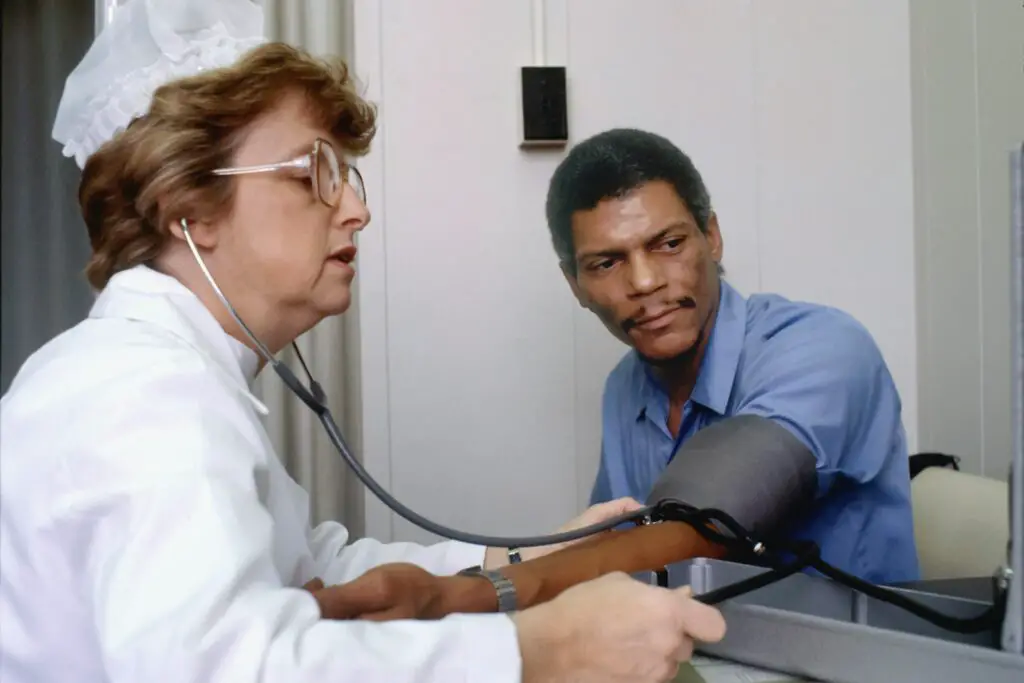
Warning Signs of High Blood Pressure
High blood pressure often shows no symptoms, earning it the nickname “the silent killer.”
However, there are some warning signs to watch for.
These include severe headaches, shortness of breath, nosebleeds, and chest pain.
If you experience any of these symptoms, seek medical attention immediately.
Persistent dizziness, blurred vision, and unexplained fatigue are also reasons to consult a doctor.
Discussing Caffeine Intake with Healthcare Providers
It’s important to discuss your caffeine intake with your healthcare provider, especially if you have high blood pressure.
They can help you determine a safe amount of caffeine based on your individual health needs.
Be honest about how much coffee and other caffeinated beverages you consume.
Your doctor may suggest reducing your intake or switching to decaffeinated options.
They can also offer guidance on managing caffeine withdrawal symptoms if you need to cut back.
Regular Check-Ups and Monitoring
Regular check-ups are essential for anyone with high blood pressure.
During these visits, your doctor can monitor your blood pressure and assess how well your treatment plan is working.
They can also provide personalized advice on managing your blood pressure, including dietary and lifestyle changes.
Consistent monitoring and open communication with your healthcare provider can help prevent complications and ensure that your high blood pressure remains under control.
Lifestyle Changes to Manage High Blood Pressure
Managing high blood pressure often also requires making key lifestyle changes.
These adjustments can help you maintain healthy blood pressure levels and improve your overall well-being.
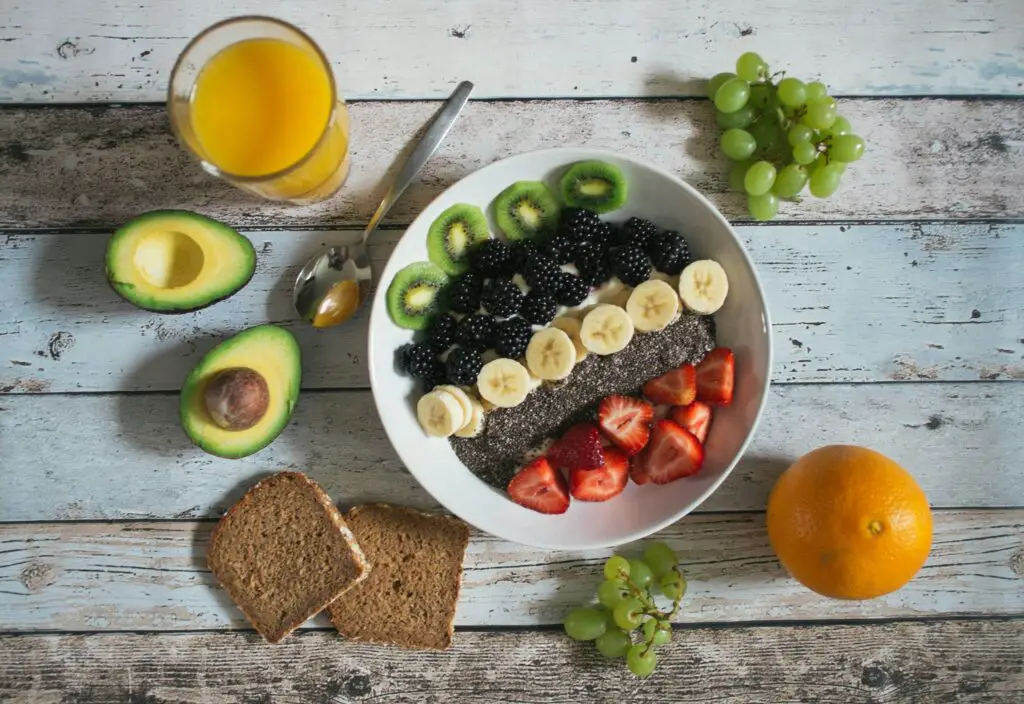
Diet and Nutrition
A healthy diet is crucial for managing high blood pressure.
Focus on eating plenty of fruits, vegetables, whole grains, and lean proteins.
Reducing salt intake is particularly important, as excess sodium can raise blood pressure.
The DASH (Dietary Approaches to Stop Hypertension) diet is a popular choice for those looking to lower their blood pressure.
It emphasizes nutrient-rich foods and minimizes high-sodium and high-fat items.
Limiting processed foods and eating more home-cooked meals can also help you control your salt intake.
Exercise and Physical Activity
Regular physical activity is another key component of managing high blood pressure.
Aim for at least 150 minutes of moderate-intensity exercise each week, such as brisk walking, cycling, or swimming.
Exercise helps strengthen your heart, making it more efficient at pumping blood and reducing the pressure on your arteries.
In addition to aerobic activities, incorporating strength training exercises a couple of times a week can further support cardiovascular health.
Stress Management
Chronic stress can contribute to high blood pressure, so finding effective ways to manage stress is important.
Techniques such as deep breathing exercises, meditation, and yoga can help you relax and lower your stress levels.
Establishing a regular routine that includes time for relaxation and hobbies you enjoy can also be beneficial.
Additionally, ensuring you get enough sleep each night supports overall health and helps your body cope with stress.
Reducing Alcohol and Tobacco Use
Limiting alcohol consumption and quitting smoking are essential steps in managing high blood pressure.
Drinking too much alcohol can raise blood pressure, so it’s recommended to drink in moderation.
For men, this means up to two drinks per day, and for women, up to one drink per day.
Tobacco use is a major risk factor for high blood pressure and cardiovascular disease.
Quitting smoking can improve your heart health and lower your blood pressure.
We recommend that you seek support from healthcare professionals or smoking cessation programs if you need help quitting.
Conclusion
Coffee affects blood pressure both in the short and long term.
While it can cause a temporary spike, habitual consumption may lead to tolerance in some individuals.
Research shows mixed results, with some studies linking coffee to lower blood pressure and others cautioning against it for those with severe hypertension.
If you have high blood pressure, you always monitor your response to coffee.
Consider decaf or other low-caffeine alternatives.
Most importantly, make lifestyle changes like a balanced diet, regular exercise, and stress management to keep your blood pressure in check.
Always consult with healthcare professionals about your caffeine intake and overall health.
FAQ’s
Does decaf coffee raise blood pressure?
Decaf coffee has significantly less caffeine than regular coffee.
While it may have a minimal impact on blood pressure, it is generally considered a safer option for those with high blood pressure.
How much coffee is safe for someone with high blood pressure?
The safe amount of coffee varies from person to person.
Generally, limiting intake to one or two cups per day is advisable.
It’s important to monitor how your body reacts and consult your healthcare provider for personalized advice.
Can green tea help lower blood pressure?
Yes, green tea contains antioxidants and other compounds that may help lower blood pressure.
It is a popular alternative for those looking to reduce their caffeine intake while still enjoying a warm beverage.
What are the best alternatives to coffee for maintaining normal blood pressure?
The best alternatives include decaf coffee, herbal teas like chamomile or peppermint, and green tea.
These options provide flavor and warmth without the high caffeine content that can impact blood pressure.


